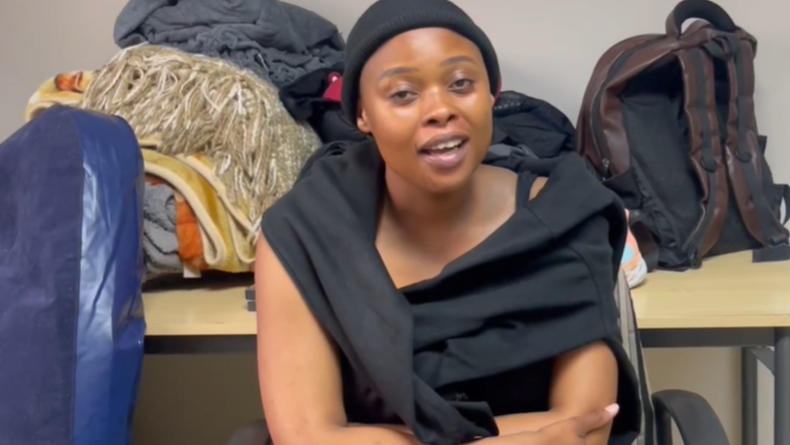Wits Hunger Strike Enters Second Week as Students Demand Registration for All
Johannesburg – The powerful statement, “We will not eat until all students are registered,” is directed at the University of the Witwatersrand (Wits), as protestors allege the institution is denying them registration due to historical debts.
Since Friday, February 14, 2025, numerous students have engaged in a hunger strike to demand their registration.
The students, who express their financial struggles, contend that education is their sole opportunity to break free from the harsh realities of their impoverished backgrounds.
Being expelled over unpaid debts would only consign them to extreme poverty without the prospect of improving their situations.
Although a hunger strike serves as a form of protest, there are significant risks involved after 45 days, primarily due to potential infections or cardiovascular failure.
Even when a protester concludes a hunger strike, there remains a risk of “refeeding syndrome.”
Some participants in the hunger strike mentioned that they were starting to feel weak but were resolute in their commitment to continue.
On Friday, February 21, 2025, the Board of Directors of Universities South Africa (USAf) expressed regret regarding the protests and unrest at various campuses as students insist on their right to register for the 2025 academic year, despite outstanding debts among other issues.
At least two institutions within USAf have resorted to online classes to begin the academic year due to student protests concerning financial exclusion and accommodation.
Such actions aim to compel the management of these institutions to address the pressing issues.
USAf, which represents South Africa’s 26 public universities, acknowledged the difficulties students face and understands that many struggle to pay their outstanding tuition fees.
The Board specifically empathizes with first-time students waiting for confirmation of funding from the National Student Financial Aid Scheme (NSFAS), as they cannot register or secure housing until then.
Additionally, the Board has noted the challenges faced by returning students barred from previous accommodations due to unpaid 2024 rentals from NSFAS.
The Board affirmed that universities have made significant efforts to assist affected students by offering special concessions on outstanding debts or by securing funding from various sources.
These initiatives reflect that university management teams are aware of household challenges.
Moreover, universities are also impacted by the inefficiencies in funding that students experience.
“While the students’ concerns are legitimate, we emphasize that these issues are being addressed to the wrong parties,” said the USAf Board.
“Universities are not the primary source of student funding and cannot settle outstanding fees or amounts owed to NSFAS. Thus, the protests are misdirected,” the Board added.
“We continue to work with NSFAS and government representatives on these matters to seek collective solutions.”
“However, disruptions across campuses are counterproductive, ultimately hindering the very academic goals our students aspire to achieve.”
The representative body of universities cautioned that interrupting registration and the academic process delays institutional operations and endangers all members of the university community, including those protesting.
While recognizing the importance of students voicing their frustrations, the USAf Board called for calm and reason to prevail.
They urged students to acknowledge that their valid grievances should be pursued through proper channels for resolution.
Working with government officials and advocating for systemic changes in funding mechanisms would yield greater results than exerting pressure on universities, which are already striving to support their students in challenging times.
“By promoting collaboration among students, universities, and government bodies, we can find sustainable solutions that ensure education access for everyone,” stated the Board.
“Looking ahead, let’s emphasize dialogue and constructive engagement to foster a more equitable and supportive educational environment.”
“Together, we can navigate these challenges while upholding the integrity of our academic institutions and addressing the urgent needs of our student body.”





